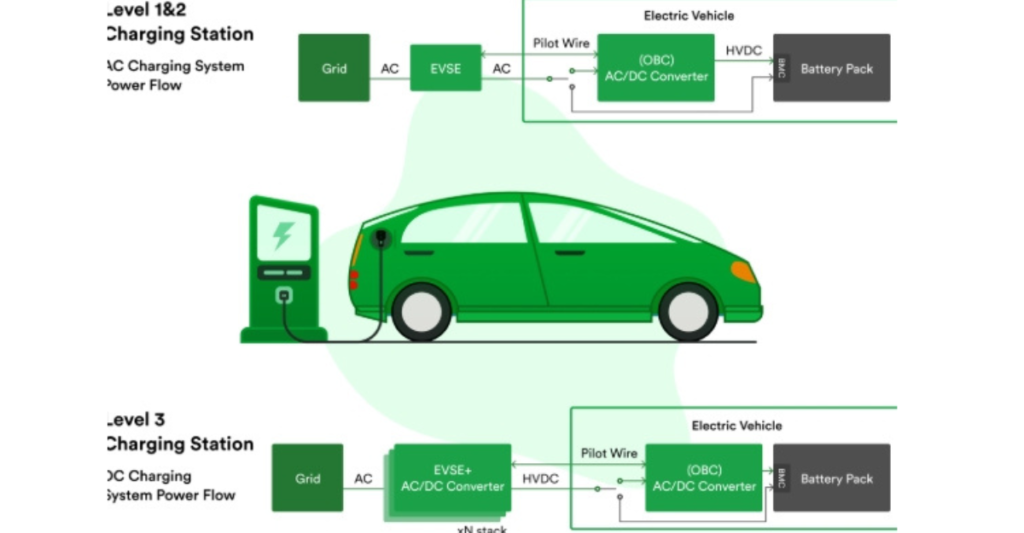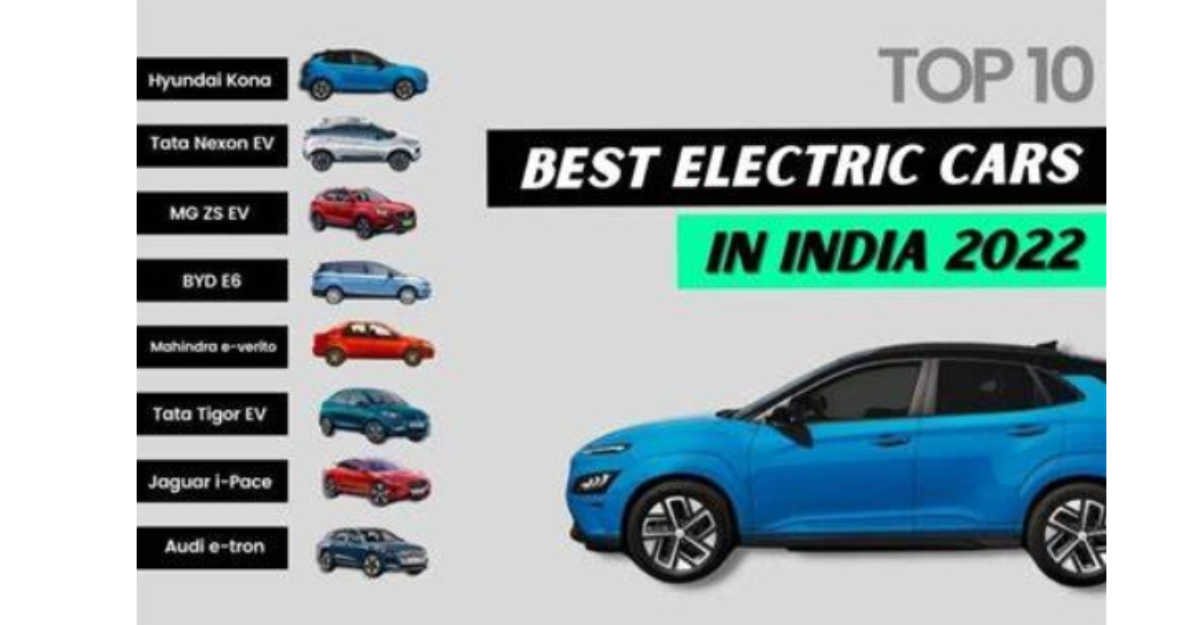Discover the top electric cars in India, comparing features, battery range, and price. Choose the perfect eco-friendly vehicle that suits your budget and driving needs.
Introduction: The Rise of Electric Cars in India

The electric vehicles (EVs) are shaping the new market in India as they are gradually going to find acceptance among consumers who are environment conscious and those who are tech-savvy. With more understanding about climate change, fuel costs increasing, and the government encouraging more environmentally friendly modes of transport, these have made EVs an attractive option for the modern-day driver.
The most important reason for this increasing interest, however, is the reduction in carbon emissions by a large amount. EVs run without burning any sort of fossil energy and are therefore considered good alternatives for conventional gasoline and diesel vehicles. For the eco-conscious buyer, owning an electric car is more than just buying another car. It is a way of living and a commitment toward the cleaner and greener planet.
In addition to being environment-friendly, electric vehicles can also result in considerable savings in the long run. Although at first glance an EV may seem to be a dear on account of its price, when running and maintenance are considered it is far cheaper to own. Fuel prices are quite high these days, and that’s when the real savings kick in for an EV owner; conversely, electricity costs much less than petrol or diesel. To top it, in India, the government gives out various financial incentives like subsidies and tax benefits to aid in the adoption of EVs by the public, thus helping further in the reduction of the overall cost of ownership.
EVs have become easier to use day by day in urban and rural areas of India due to advances in battery technology, better driving ranges, and a sprawling charging infrastructure. Thus it is evident that electric vehicles stand not only for a transition in the technology of automobiles but also for a step toward sustainable living. Let me know if you want to know about specific EV models, or rather, their advantages!
1. Key Features of Electric Cars

Electric cars are designed with high technologies which redefine driving and improven up on efficiencies. Take a look at some primary features:
Battery Technology:
- Now modern electric vehicles have lithium ion batteries which have long life and high energy density.
- Quick charging with longer service life: that promises the expected convenience and reliability among many.
- Such as Tata Nexon EV, which can take you 465 km in space with one charging, this makes it ideal for long-distance trips.
Smart Connectivity:
- Electric vehicles, for example, Hyundai Kona Electric or MG ZS EV, have a smart connectivity syste which includes real-time navigation, mobile application, and voice commands for remote controlling.
- All through this technology, the driver will know battery status, charging stations near him, and vehicle setting from an App remotely.
Regenerative Braking:
- It converts kinetic energy into electrical energy when you apply the brakes, thereby charging the battery and enhancing efficiency.
- This would benefit urban drivers since conditions are much conducive where braking is often required.
- It would not only improve electric automobiles’ fuel efficiencies, but it would also improve the driving experience in terms of connectivity, range extending, and modern-engineered energy issuance.
2. Comparing Popular Electric Cars in India

Comparing the three leading electric vehicles in India—in this case, Tata Nexon EV, MG ZS EV, and Hyundai Kona Electric-toward battery range, charging time, and price:
Tata Nexon EV:
- Battery Range: 312 km maximum in 1 full battery charge.
- Charging Time: Charges up to 100% in 8 hours by a normal charger and takes around 60 minutes for up to 80% charge on DC fast charging.
- Price: The price starts at Ex Showroom Rs 13.99 Lakh.
- Ideal For: Those hesitant to pay a high price for compact and efficient urban city EVs.
MG ZS EV:
- Battery Range: 340 km on full charge.
- Charging Time: Charging takes 6-8 hours to full charge by a regular charger; fast charge takes about 50 minutes for around 80% charge.
- Price: Starting price from ex-showroom ₹20.88 lakh.
- Ideal For: Space and features with a good balance for range and performance are a priority for buyers of this electric SUV.
यह भी पढ़े: “7 Best SUVs for Families: Features, Comfort, and Safety Compared”
Hyundai Kona Electric:
- Range: Provides a maximum of 452 km in one single charge, making this champion-the long-range contender.
- Charging: Charging with the standard charger takes 6 hours and 10 minutes up to 100% and 57 minutes, fast charging, up to 80%.
- Price: From Rs 23.75 lakh onwards (ex-showroom).
- Ideal For: This is only for buyers who need premium features and high range for long drives.
These models vary all the way from budget-oriented marginal city EVs to long-range premium ones.
3. Benefits of Electric Cars for Urban and Long-Distance Driving

Electric Vehicles (EVs) are the bright flame in urban driving and long distance road trips as they offer the performance, maintenance, and economically cost-efficient that these would make compared to conventionally powered vehicles:
Urban Driving:
- Stop-and-go traffic is less tiresome with the use of the EV as there is no need for a conventional engine accompanied with gear shifts. The smooth, silent operation of an EV is its most striking contribution to driving in a city filled with angry traffic.
- Efficiency and decreased energy use is provided through regenerative braking systems recharging their batteries during frequent braking to improve performance.
- The small Tata Nexon EV is perfect for such congested streets and comes with features such as smart connectivity and easy parking.
Long-Distance Road Trips:
- Most of the modern electric vehicles have long battery ranges, with some examples being the Hyundai Kona Electric, which can drive up to 452 km on a single charge. It has been amazing for long drives.
- The increasing number of fast-charging stations along roads means you can charge for as little as 50-60 minutes to get an 80% charge.
- Traveling by electric vehicles is a more convenient and quiet experience, thus decreasing the amount of fatigue encountered when traveling long distances.
Maintenance Cost Low:
- EVs have fewer moving parts than their internal combustion engine cousins, meaning that they cost less to maintain. There is no need for changing oil, and wear-and-tear on parts like brakes is reduced due to regenerative braking.
Cost Effectiveness:
- This means that electricity costs less by far than petrol or diesel, which translates into massive savings as far as fuel costs are concerned.
- Government schemes such as subsidies and tax benefits even further lower the effective cost of ownership.
- Seamless and eco-friendly driving can be offered by EVs, whether urban traffic or road trip driving.
4. Charging Infrastructure and Battery Life

The transformation of electric vehicles (EVs) from being theoretical into practical life now undoubtedly makes the very concept a reality. This has been made possible by the proliferation of charging networks across India and various improvements in battery technology. Following is an overview:
Charging Infrastructure in India:
- India has witnessed a tremendous increase in EV charging stations because of various government initiatives, including the FAME II of the government, which promotes the establishment of public and private charging networks.
- There are and increasingly improving fast-charging stations now spread across major cities like Delhi, Mumbai, and Bengaluru, while highways are being equipped with EV-friendly infrastructure to help travelers on long-distance jaunts.
- Tata Power, EVRE, and several others are now managing to set up charging points across the country to increase the convenience enjoyed by the EV owners.
Click Here: Top 10 Best Electric Cars In India
Battery Life:
- EV batteries that are standard lithium-ion have a lifespan of 8-15 years or 1.5-3 lakh km, depending entirely on use and maintenance.
- Battery performance is influenced by a host of factors like climate, charging habit, and style of driving, and generally, wear and tear are accelerated in India’s conditions like high temperature and traffic congestion.
How to Prolong Battery Life:
- Maintain Charge Levels: Maintain batteries charged between a level of 20%-80% for daily use and avoid overcharging and deep discharging.
- Limit Frequent Fast Charging: Avoid using fast chargers most of the time but in emergencies because they heat the battery cells in addition to putting stress on them.
- Regenerative Braking: Regenerative braking should be used. By slowing down, create a source of stored battery power from kinetic energy.
- Temperature Management: Avoid charging under extreme temperatures and always park the vehicle under the shade during hot weather.
- Scheduled Charging: Adopt charging limits and schedule it during off-peak hours to avoid overstressing the battery charging mechanism.
Indeed, it is in this burgeoning charging network combined with correct handling of the battery where the fact that the EV owners have a seamless and efficient driving experience, as well as prolonging their vehicle life, significantly lies.
5. Cost Savings: Upfront Cost vs Long-Term Benefits

At first, most electric vehicles (EVs) may seem a bit higher priced than standard internal combustion engine (ICE) vehicles, but their long-term financial benefits will make them a huge draw for buyers. Here’s the breakdown:
Initial Price Comparison:
- EVs like the Tata Nexon EV start at around ₹13.99 lakh, while comparable ICE cars like the Hyundai Creta are priced at about ₹10.87 lakh entry price points.
- EVs are expensive because of high-cost batteries that run them, the expensive lithium-ion batteries.
Reduced Fuel Costs:
- Electricity is far cheaper than petrol or diesel. Charging an EV for around 100 km would cost the owner about ₹80-100, while for the same distance, a fuel cost for an ICE car would range from ₹500-700.
- Such savings accumulate over a while adding to the EVs’ economy over its use for daily commuted travel and long-distance drives.
Lower Maintenance Costs:
- With EVs, fewer parts are in motion, which keeps down maintenance costs. No oil change is required, and parts like brakes do not wear as much because of regenerative braking.
Government Incentives:
- The Indian government has subsidies under the FAME II scheme which offer a direct upfront difference in price in EVs. For buyers, this means that they could get an incentive of up to ₹1.5 lakh on some models2.
- added benefits are diminished taxes on goods and services (5% on EVs versus 28% for the ICE vehicles) and road tax exemption in certain states.
Long-Term Savings:
- Though the upfront cost is high, the combination of savings on fuel, less maintenance, and benefits will make it far less expensive to own EVs over their whole lifetime.
- Making consideration of all these factors should help any customer make a sound and enlightened decision perfectly aligned with their interests and values regarding finances and the environment.
Conclusion: Embracing the Future of Mobility
Electric vehicles (EV) today are the turning points in car technology-they surely represent clearing the air along a greener, smarter, and more cost-effective way to drive. And the advantages? Cutting carbon emissions, saving on fuel and maintenance, installing the latest technologies, and making EVs quite a good choice for both short-distance commutes within cities and long-distance travel with government incentives.
Adopting EVs means driving toward environmental protection and ushering in sustainability. There’s also a vast improvement in the charging network, and batteries become much more adaptable to lifetime usage. The future looks so bright, indeed.
When browsing the electric automobile world, be sure to consider the features that fit your lifestyle, budget, and driving needs. There is, after all, an EV designed to meet your criteria, whether you consider an extended range essential for those longer road trips, the compact model efficient for city driving, or the advanced technology needed for seamless connectivity. The promise of a bright, clean future is also reflected in the vehicle.

